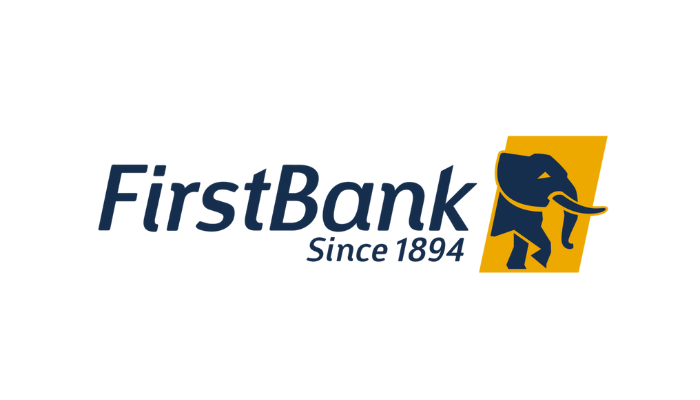FirstBank of Nigeria has made a significant breakthrough in its financial services mandate, announcing that it has now dispersed over ₦1 trillion in digital loans to individuals and small businesses—cementing its role at the forefront of financial inclusion and innovation. The milestone underscores the bank’s commitment to leveraging technology to reach underserved borrowers and bolster Nigeria’s digital economy.
Since launching its digital lending platform, FirstBank has steadily scaled operations to offer accessible credit through smartphones and feature phones. The digital loan facility enables eligible customers to apply in minutes without visiting a physical branch, using an automated system to assess credit risk and approve loans. With disbursement completed within hours, the facility has become particularly relevant for micro‑enterprises, gig workers, and individuals in informal sectors.

FirstBank reports that the ₦1 trillion mark was reached through incremental advances across thousands of transactions. Typical loan sizes range from ₦20,000 to ₦500,000, tailored to diverse segments including traders, artisans, transport operators, and smallholder farmers. The bank’s digital loan product is structured to support cash flow needs, working capital and emergency expense coverage, with repayment terms ranging from 30 to 90 days.
The achievement reflects significant adoption: over two million unique loan requests have been processed digitally, and transaction growth—month-on-month—has remained in double digits. FirstBank attributes the surge to simplified onboarding using BVN verification, USSD codes, mobile app interfaces, and partnerships with fintech platforms to widen distribution points.
Industry analysts highlight the ₦1 trillion milestone as a signal of how digital lending can drastically expand credit access beyond urban centres and salaried privilege. With roughly 40 percent of Nigerians lacking formal access to credit, the model serves as a bridge to financial inclusion. Observers see the model as especially transformative for women-led micro-enterprises and rural businesses, which often struggle to meet traditional collateral requirements.
FirstBank’s MD/CEO described the milestone as a testament to innovation-driven growth and commitment to inclusive banking. He noted that the digital lending programme complements its broader retail strategy, particularly where savings mobilisation, remittance services, and financial education converge. The bank emphasized that transaction transparency, digital documentation, and ease-of-use have created a seamless user experience and enhanced credit tracking.
Beyond inclusion, the digital loan initiative is positioned as a strategic profit centre. While individual loan sizes are modest, high volume has compensated for low per-ticket margins. FirstBank states that repayment rates exceed 90 percent, supported by integrated tracking modules that flag borrowers approaching due dates and employ gentle reminder systems. The combination of scale and low interest rates has turned the lending programme into a sustainable revenue line.
Market observers expect Second Bank Nigeria (Zenith), Access, GTBank, and some fintech disruptors to intensify efforts in digital lending following FirstBank’s success. Already, fintech partnerships are leading to co-branded loan products for ride-hail agents, market associations, and agritech clusters. Some private-sector players predict that Nigeria’s digital credit space could top ₦2 trillion in aggregate by year-end as competition heats up.
However, experts urge measured growth amid caution over pitfalls. Soft credit risk management, rising household debt levels, and interest rate volatility remain concerns. FirstBank maintains that its risk algorithms are supported by behavioural scoring and mobile wallet analytics to assess repayment likelihood, with continuous refinement to minimise default risk. For borrowers with repeated slippage, the bank applies graduated penalties and temporary suspension from future digital credit access.
Financial inclusion advocates emphasize the need for responsible lending practices. They caution that without adequate regulation and transparency, digitally delivered loans—even with short tenors—can trap borrowers in cycles of high effective interest or create overexposure to unsecured credit. In response, FirstBank said it is working with the Central Bank of Nigeria to ensure compliance with fair practice standards and consumer protection frameworks.
The impact of FirstBank’s digital lending extends beyond finance. Economists point out that timely credit boosts business activity in informal markets, agricultural production, transport logistics, and service delivery. By smoothing cash flow cycles for micro-businesses, digital loans help traders stock inventory during festive seasons, support small-scale farmers in bridging planting seasons, and enable artisans to fill contracts without delay.
FirstBank’s initiative has also created ecosystems around credit. Aggregated data on borrower performance is now being leveraged to offer supplementary services—such as savings-linked rewards, remittance discounts, and financial literacy content. The bank notes that successful digital loan borrowers are now three times more likely to save regularly and sign up for other digital products.
On the regulatory front, FirstBank continues to engage the CBN and industry bodies to standardize digital lending rules at the national level. It advocates clarity on disclosures, interest-rate caps, risk-rating methods, and grievance mechanisms to ensure the nascent sector evolves on a durable framework. As digital credit grows, consumer protection, cross-platform interoperability, and data privacy have become anchor discussion points.
Looking ahead, FirstBank plans to refine its loan products with tailored offerings; micro-agribusiness loans co-linked to weather and yield indices, gig-economy credit tied to earnings data, and loyalty programmes for high-performing borrowers. The bank also intends to extend product access via embedded finance in utility platforms and e-commerce partnerships.
With the ₦1 trillion digital disbursement mark achieved, FirstBank has demonstrated the potential of technology-led financial inclusion in Nigeria. Yet sustaining growth hinges on maintaining high repayment discipline, robust consumer protection, and innovation in credit product design. If managed effectively, digital lending could reshape Nigeria’s credit landscape—unlocking economic participation for millions and strengthening the country’s wider financial ecosystem.
Support InfoStride News' Credible Journalism: Only credible journalism can guarantee a fair, accountable and transparent society, including democracy and government. It involves a lot of efforts and money. We need your support. Click here to Donate
